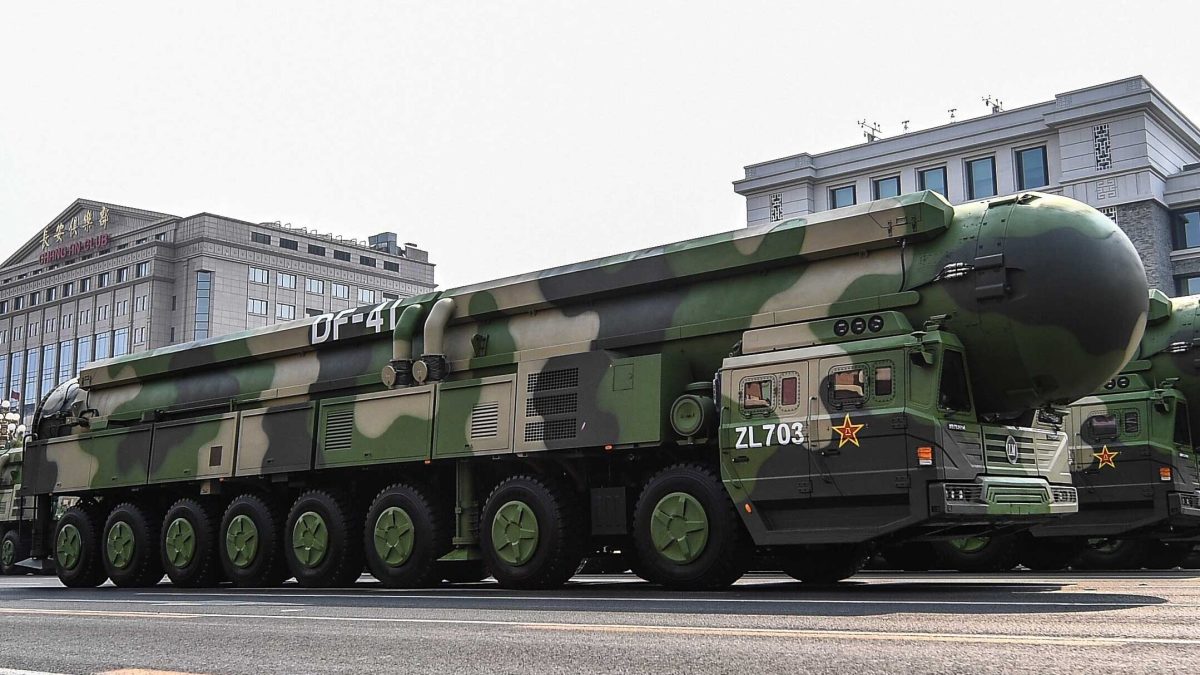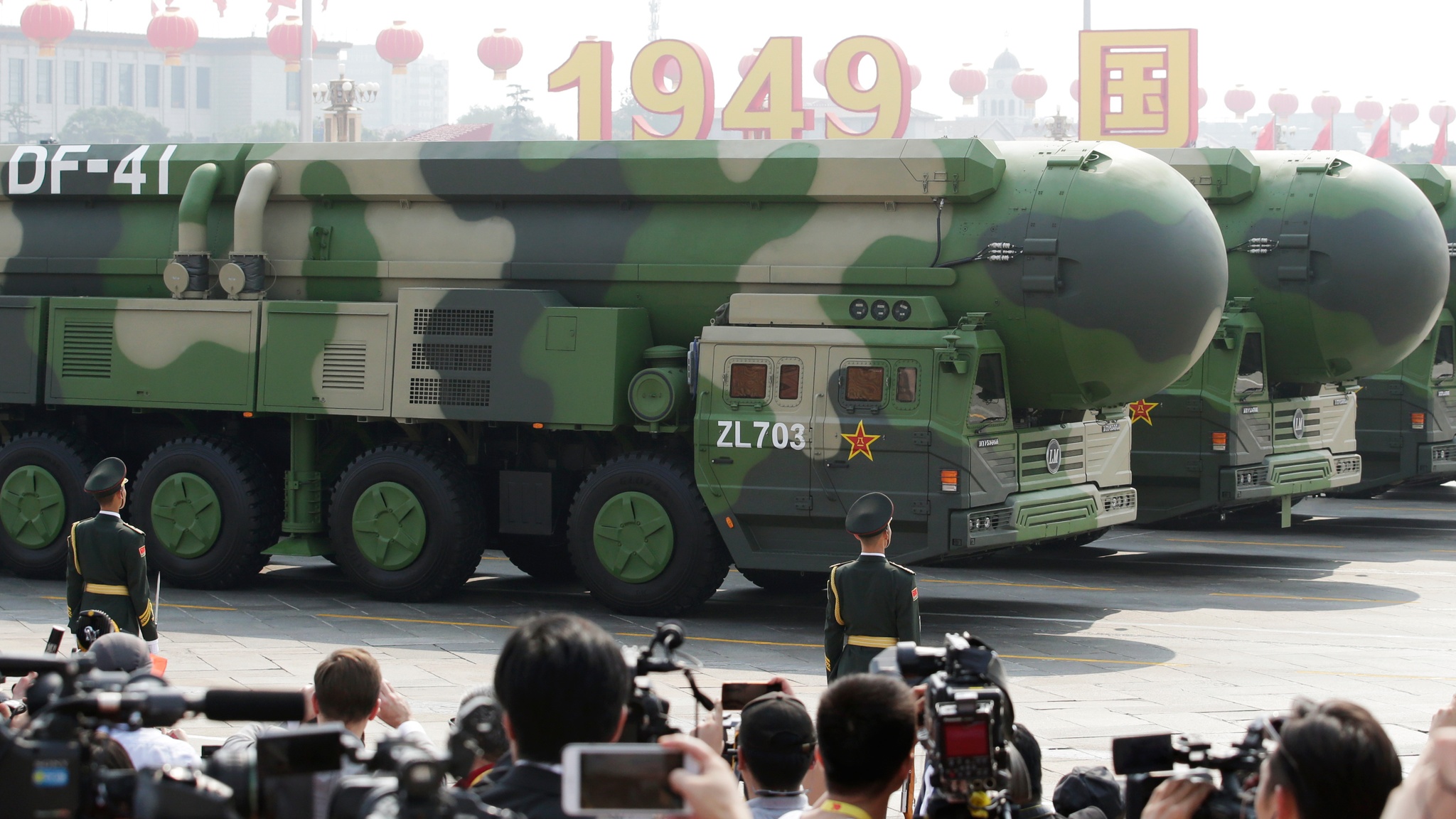Corrupt Chinese Officials Filled Missiles With Water, US Report Says
A report on U.S. intelligence evaluations of China's military reveals a disturbing case of pervasive corruption, where corrupt Chinese officials filled missiles with water for rocket fuel in missiles.
Author:Suleman ShahReviewer:Han JuJan 09, 202432.6K Shares907.6K Views

A report on U.S. intelligence evaluations of China's military reveals a disturbing case of pervasive corruption, where corrupt Chinese officials filled missileswith water for rocket fuel in missiles. According to sources cited by Bloombergand familiar with these intelligence assessments, the extensive military purge undertaken by Chinese President Xi Jinping was a response to alarming levels of corruption within the country's defense infrastructure.
Quoted in the report, the sources assert that widespread corruption posed a significant threat to President Xi's ambitious plans to modernize China's armed forces. This disclosure has led U.S. officials to believe that President Xi is now less inclined to contemplate major military actions in the foreseeable future.
Corrupt Chinese Officials Filled Missiles With Water
In a shocking revelation, a recent report on U.S. intelligence assessments of China's military has exposed widespread corruption, including the disturbing act of filling missiles with water instead of rocket fuel. The report indicates that the pervasive corruption has not only jeopardized Chinese President Xi Jinping's ambitious plans to modernize the nation's armed forces but has also prompted an extensive military purge.
Sources familiar with the intelligence assessments, quoted by Bloomberg, suggest that the dismissal of China's defense minister and other senior officials last year was directly linked to corruption within the country's defense infrastructure. Missiles filled with water and malfunctioning silo lids were cited as key factors behind the unprecedented sackings.
The Rocket Force, China's primary military branch overseeing nuclear weapons, was reportedly a hotbed of corruption, raising concerns about the nation's readiness for major military actions, including the speculated invasion of Taiwan. The specific type of missiles filled with water was not disclosed in the report, but the issues have cast doubt on the overall capabilities of China's military and its broader modernization efforts.
Despite the construction of numerous nuclear-capable missile silos in Xinjiang in 2021, corruption examples such as poorly sealed silo lids hindering missile launches in Western China have surfaced, according to U.S. intelligence sources. The extensive corruption scandal even reached the highest echelons of the military, leading to the dismissal of Chinese defense minister Li Shangfu, who vanished for two months before being replaced in October.
The severity of corruption within China's Rocket Force and the broader People's Liberation Army (PLA) has reportedly forced President Xi Jinping to reconsider the possibility of major military actions shortly. Analysts suggest that the purge, which included nine high-ranking PLA officers ousted from the National People's Congress, is part of Xi's broader anti-corruption campaign within the military.
The implications of the corruption scandal extend beyond China's borders, raising questions about the internal stability and operational readiness of the nation's military forces. This revelation comes at a time when China has been actively expanding its military presence in Asia, causing concerns among neighboring countries.
Despite the significant impact of the corruption scandal, the Chinese embassy in Washington has not provided immediate comments. The situation underscores the challenges President Xi faces in modernizing and maintaining the integrity of China's military forces, casting shadows over the nation's military ambitions on the global stage.
Conclusion
People familiar with the assessments state that U.S. intelligence reveals President Xi Jinping's extensive military purge was triggered by the revelation that widespread corruption was undermining his attempts to modernize the armed forces.
This corruption, pervasive within China's Rocket Force and across the nation's defense industrial base, is deemed so severe by U.S. officials that they now opine President Xi is less inclined to consider major military actions in the upcoming years, as disclosed by anonymous sources familiar with the intelligence.

Suleman Shah
Author
Suleman Shah is a researcher and freelance writer. As a researcher, he has worked with MNS University of Agriculture, Multan (Pakistan) and Texas A & M University (USA). He regularly writes science articles and blogs for science news website immersse.com and open access publishers OA Publishing London and Scientific Times. He loves to keep himself updated on scientific developments and convert these developments into everyday language to update the readers about the developments in the scientific era. His primary research focus is Plant sciences, and he contributed to this field by publishing his research in scientific journals and presenting his work at many Conferences.
Shah graduated from the University of Agriculture Faisalabad (Pakistan) and started his professional carrier with Jaffer Agro Services and later with the Agriculture Department of the Government of Pakistan. His research interest compelled and attracted him to proceed with his carrier in Plant sciences research. So, he started his Ph.D. in Soil Science at MNS University of Agriculture Multan (Pakistan). Later, he started working as a visiting scholar with Texas A&M University (USA).
Shah’s experience with big Open Excess publishers like Springers, Frontiers, MDPI, etc., testified to his belief in Open Access as a barrier-removing mechanism between researchers and the readers of their research. Shah believes that Open Access is revolutionizing the publication process and benefitting research in all fields.

Han Ju
Reviewer
Hello! I'm Han Ju, the heart behind World Wide Journals. My life is a unique tapestry woven from the threads of news, spirituality, and science, enriched by melodies from my guitar. Raised amidst tales of the ancient and the arcane, I developed a keen eye for the stories that truly matter. Through my work, I seek to bridge the seen with the unseen, marrying the rigor of science with the depth of spirituality.
Each article at World Wide Journals is a piece of this ongoing quest, blending analysis with personal reflection. Whether exploring quantum frontiers or strumming chords under the stars, my aim is to inspire and provoke thought, inviting you into a world where every discovery is a note in the grand symphony of existence.
Welcome aboard this journey of insight and exploration, where curiosity leads and music guides.
Latest Articles
Popular Articles
